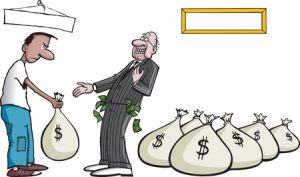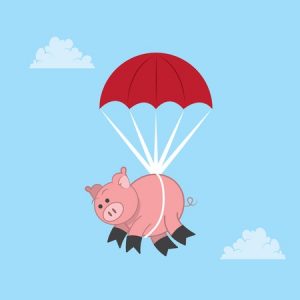 When people find themselves suddenly in need of a bondsman, they just want answers. I often get asked, “Do I get my bail money back?”. This article answers all questions about the money end of bailing someone out. If any questions remain, please call Aarrow Bail Bonds at 804-833-2785.
When people find themselves suddenly in need of a bondsman, they just want answers. I often get asked, “Do I get my bail money back?”. This article answers all questions about the money end of bailing someone out. If any questions remain, please call Aarrow Bail Bonds at 804-833-2785.
Do you get bail money back?
The short, direct answer to “Do I get my money back?” is “it depends”. It depends on how you choose to bond your loved one out. Let’s first go through the options of paying a bail bond. This article assumes the person being bonded out has been issued a secured bond from the magistrate or judge.
A secured bail bond is simply a financial guarantee the defendant will show up to court. It’s backed by some type of collateral or surety. That could be cash, a guarantee from an insurance company, a bail bond agent, etc.
On the other hand, an unsecured bail bond is, in essence, a get out of jail free card. The defendant is released without paying any money to the court. However, if the defendant does not show up to court, that will be the bond amount placed on his or her arrest warrant.
So, suppose your loved one has a $1000 secured bond. If you go to the magistrate and pay the full amount of the bond, then yes, you get the entire $1000 back once your loved one’s court case is finalized providing the defendant shows up to all court appearances. However, if your loved one does not show up to court, your $1000 is in jeopardy.
 But when a bail bondsman in Virginia is used, the cost is 10 percent of the bond. The $100 paid to the bail bondsman is the premium, and it’s never returned. Once your loved one’s case is finalized, there’s nothing else to be done, but you don’t get the premium back.
But when a bail bondsman in Virginia is used, the cost is 10 percent of the bond. The $100 paid to the bail bondsman is the premium, and it’s never returned. Once your loved one’s case is finalized, there’s nothing else to be done, but you don’t get the premium back.
The other issue is the cosigner. The cosigner would be financially responsible for the full amount of the bond should the defendant fail to appear in court.
There is only one circumstance where a bondsman will return money, and that’s if the full amount of the bond was given to the bondsman as a surety for the bond, in addition to the 10 percent premium. If this is the case, there would be no cosigner, since the full bail bond amount is held as a retainer. This is sometimes used if the person bonding out the defendant has the money, but may not be able to pay the magistrate in person. For example, the parent who is out of state would rather have their credit card charged for the full amount of the bond rather than deal with the paperwork or may not have the credentials to be a cosigner, but they have the credit.
Do you get bail money back if guilty?
The premium of the bail bond is never returned regardless of the verdict. However, if the full amount of the bond is paid as surety, then yes. The full surety of the bond is returned, no matter who it’s paid to, either the magistrate or the bail bondsman.
Do you get bail money back if charges are dropped?
I’m assuming what is meant by this question is if the case is either dismissed by the judge or the case is ruled as Nolle prosequi, or not prosecuted by the state. In either case, the premium is not returned from the bondsman. No sir. And again, the full amount of the surety would be returned, either from the court if it was paid to the magistrate, or from the bail bondsman.
Do you get bail money back if innocent or not guilty?
Say it with me here. No. The premium is never returned. Whether the defendant is innocent or guilty doesn’t matter. Bail bond premium is a no. Full amount of the bond as surety is a yes, it is returned.
Do you get bail money back after court?
The bail bond premium is never returned. Only the surety of the full amount of the bond is returned. Again, it doesn’t matter how the case is finalized: innocent, guilty, dismissed, nolle procequi. As long as the defendant shows up to all of the court proceedings, the prepaid surety money will be returned.
What happens to bail money?
Remember, unless the defendant is bonded out by paying the entire bond to the magistrate, there really is no bail money. When a bail bondsman is used, no money is exchanged with the court. The only circumstance where the court will be involved with the bail money is if the defendant skips bail and is not recovered. In that case, the court will retrieve the full amount of the bond from the bail bondsman. The cosigner will then be obligated to pay the full amount of the bond to the bail bondsman.
If you have any question, call Aarrow Bail Bonds at 804-833-2785.
